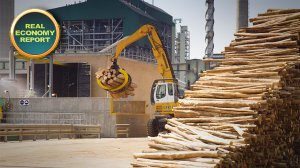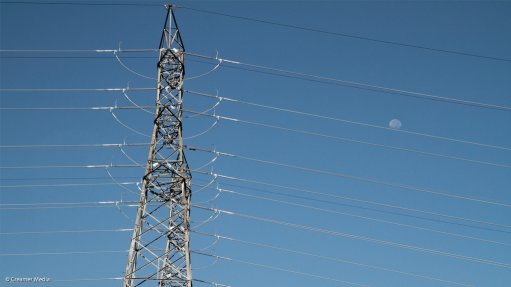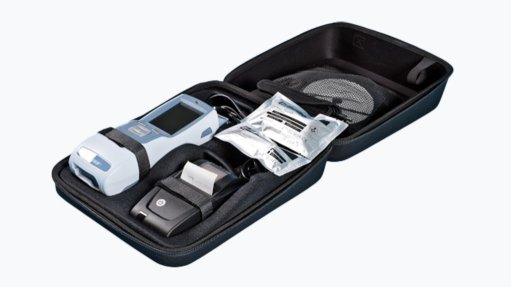Sappi producing specialised cellulose to secure future growth, profitability
From Creamer Media in Johannesburg, this is the Real Economy Report. Paper and pulp manufacturer Sappi recently started producing specialised cellulose at its Ngodwana mill, in Mpumalanga, in line with its strategy of facilitating growth in high-margin products. Leandi Kolver tells us more.
Leandi Kolver:
Sappi officially opened its Fibre Line 3 specialised cellulose plant in June this year. The plant, that was currently ramping up was expected to reach its full 200 000 t/y capacity by the end of this year.
Sappi Southern Africa CEO Alex Thiel tells us more about why Sappi decided to open this plant.
Sappi Southern Africa CEO Alex Thiel:
“What we have seen at this plant is that we have excess wood in the area, hard wood especially, and that the best way that we could add value to that wood is to install a dissolving pulp line.
“So what we have done is we have converted one of our market pulp lines, where we just sell the pulp for paper production, into a dissolving pulp line. That has allowed us to earn export revenue. Most of the sales of this product, which is about 200 000 t/y is sold into the east and we sell it in dollars so it is a good foreign revenue earner for Sappi and for the country.
“What we have also done is we have just upgraded our recovery boiler circuits which means that the other two machines – there is a newspaper machine here and a containerboard machine – have benefitted from that in efficiencies and better output and that kind of thing.
“So really a general upgrade but also focusing on the export of the dissolving pulp.”
Leandi Kolver:
Specialised cellulose can be used in products such as textiles, personal beauty products, and hygiene products, in addition to having medical and industrial uses.
Thiel explains the impact this product will have on the textile industry.
Alex Thiel:
“In the textile industry there is mostly polyester or fibres that are from an oil based product and then you have cotton and wool.
“Now cotton and wool are very limited in production, they compete with agricultural land, you have to have a lot of water, pesticides, that kind of thing to plant cotton. But you need that hydrophilic properties of a cotton product that wicks away water from your skin.
“Now dissolving pulp is a perfect substitute for that, it is made from trees, but in the end it gets processed into a fibre, the viscose ram which has very similar and sometimes better properties than cotton, and if you look at the natural resources actually used to produce that product it is about three times more efficient than cotton would be.
“So really that is the focus, that we are acting and we are becoming a substitute for cotton fibre.”
Shannon de Ryhove:
Other news making headlines this week: Personalised domain names launched for Johannesburg, Cape Town and Durban; Transnet Freight Rail sees the new Swazi link raising coal export capacity to 120-million tons a year; and South Africa has ‘no choice’ but to move towards advanced manufacturing.
In a move that will see South Africa’s three largest cities receive personalised Internet domain names, the South African Central Registry recently announced the introduction of new city top-level domains for Johannesburg, Cape Town and Durban.
South African Domain Name Authority CEO Vika Mpisane
Transnet Freight Rail CEO Siyabonga Gama reported that the feasibility study into a proposed rail link through Swaziland is at an advanced stage and that a business case should be presented for approval by the end of December.
Transnet Freight Rail CEO Siyabonga Gama
A panel of experts says South Africa has no choice but to develop its advanced manufacturing capabilities, as the structurally high wages of the country and its poor labour productivity relative to other export-orientated countries hampers its global competitiveness.
DST director-general Dr Phil Mjwara
That’s Creamer Media’s Real Economy Report. Join us again next week for more news and insight into South Africa’s real economy.
Article Enquiry
Email Article
Save Article
Feedback
To advertise email advertising@creamermedia.co.za or click here
Announcements
What's On
Subscribe to improve your user experience...
Option 1 (equivalent of R125 a month):
Receive a weekly copy of Creamer Media's Engineering News & Mining Weekly magazine
(print copy for those in South Africa and e-magazine for those outside of South Africa)
Receive daily email newsletters
Access to full search results
Access archive of magazine back copies
Access to Projects in Progress
Access to ONE Research Report of your choice in PDF format
Option 2 (equivalent of R375 a month):
All benefits from Option 1
PLUS
Access to Creamer Media's Research Channel Africa for ALL Research Reports, in PDF format, on various industrial and mining sectors
including Electricity; Water; Energy Transition; Hydrogen; Roads, Rail and Ports; Coal; Gold; Platinum; Battery Metals; etc.
Already a subscriber?
Forgotten your password?
Receive weekly copy of Creamer Media's Engineering News & Mining Weekly magazine (print copy for those in South Africa and e-magazine for those outside of South Africa)
➕
Recieve daily email newsletters
➕
Access to full search results
➕
Access archive of magazine back copies
➕
Access to Projects in Progress
➕
Access to ONE Research Report of your choice in PDF format
RESEARCH CHANNEL AFRICA
R4500 (equivalent of R375 a month)
SUBSCRIBEAll benefits from Option 1
➕
Access to Creamer Media's Research Channel Africa for ALL Research Reports on various industrial and mining sectors, in PDF format, including on:
Electricity
➕
Water
➕
Energy Transition
➕
Hydrogen
➕
Roads, Rail and Ports
➕
Coal
➕
Gold
➕
Platinum
➕
Battery Metals
➕
etc.
Receive all benefits from Option 1 or Option 2 delivered to numerous people at your company
➕
Multiple User names and Passwords for simultaneous log-ins
➕
Intranet integration access to all in your organisation



















